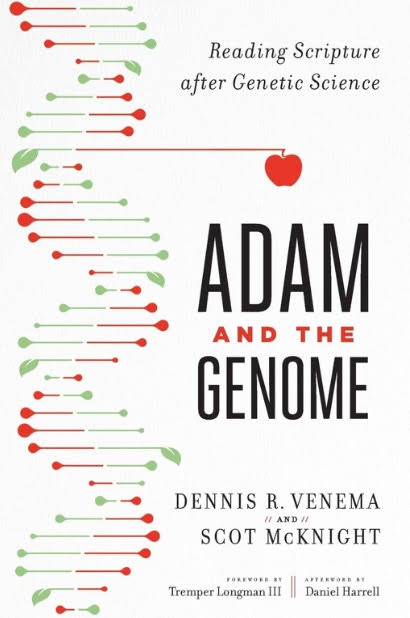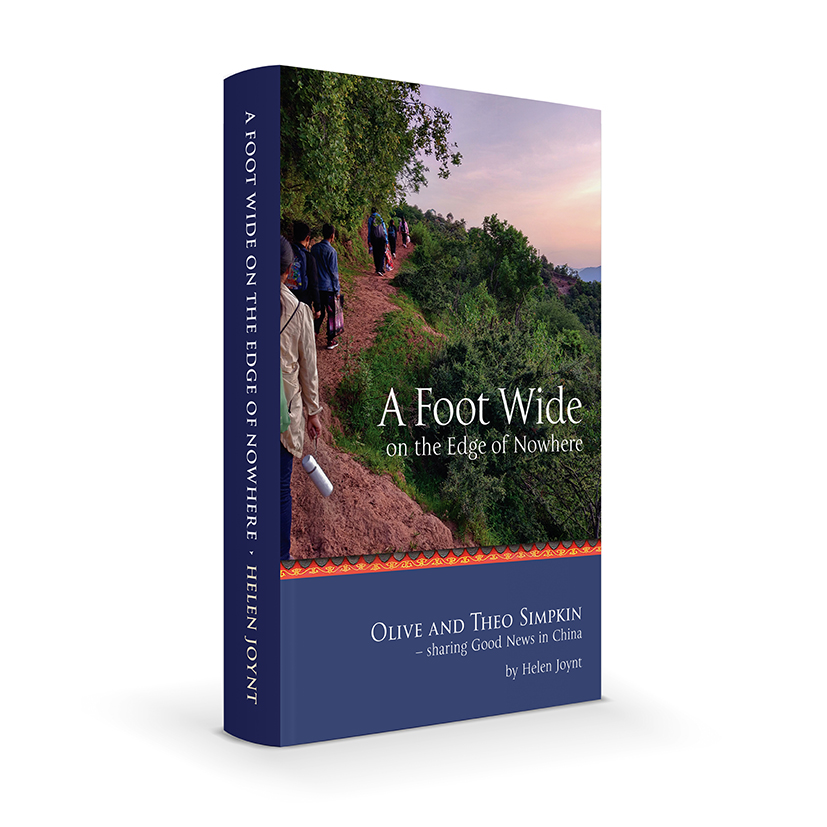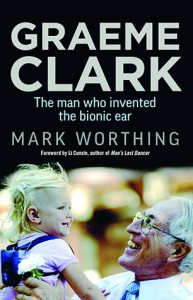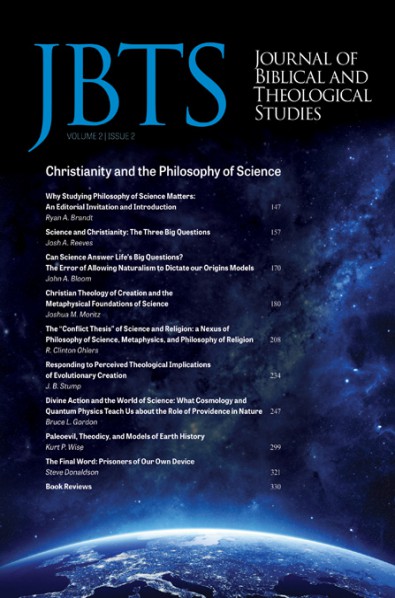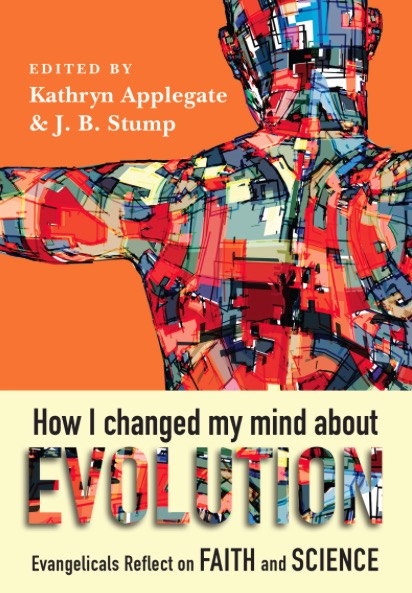


Calvin and the Natural Order: Positives and problems for science-faith dialogue
Brian Edgar, July 2010.
Download PDF
CALVIN AND THE NATURAL ORDER:
Positives and problems for science-faith dialogue
Brian Edgar
Professor of Theological Studies, Asbury Theological Seminary, and Fellow of ISCAST.
Abstract
The year 1543 saw the publication of Copernicus’ On the Revolutions of Celestial Bodies, Vesalius’ On the Structure of the Human Body and Calvin’s The Necessity of Reforming the Church – three publications which provided a philosophical foundation for a reformation of both church and scientific method. This paper discusses the way Calvin’s theology contributed to a positive and theologically enhancing view of science while, at the same time exhibiting a greater ambivalence about science than the general approach which subsequently developed as a result of his overall thought.
While his thought involves a strong defence of the legitimacy of the scientific investigation of the natural world various dualisms (including the dualisms of common and special grace and the anthropological dualism of body and soul) illustrate a lack of that dynamic which is necessary for a dialogical, integrative or strongly interactive mode of relationship between the two. The solution to this involves developing a bridge between common and special grace, through an approach which stresses a greater integration of the salvific work of God in all divine activity, both in the work of the Holy Spirit in the natural world, as well as in the specific revelation of God through the incarnate Christ.
Key words
Calvin, Copernicus, Vesalius, science, reformation, science- faith dialogue, natural theology, common grace, special grace, prevenient grace, anthropological dualism, Wesleyanism.
If one wished to select a particular year to act as a marker for the beginning of the intellectual revolution which led to what we might call ‘modern science’ then one could do much worse than to select the year of our Lord 1543. This was the year in which Nicolaus Copernicus (1473- 1543) finally published De Revolutionibus Orbium Coelestium (On the Revolutions of Celestial Bodies), his astronomical masterpiece which offered a heliocentric alternative to Ptolemy’s geocentric system which had been widely accepted for more than a millennium. It was, by happy coincidence for those who like neat and decisive beginnings, the year in which Andreas Vesalius published his equally groundbreaking work in biology – De Humani Corporis Fabrica (On the Structure of the Human Body). As Copernicus provided an atlas of the heavens so Vesalius provided an atlas of the human body. Modern astronomy and anatomy arose together and as they did modern science came into being. These studies were not mere additions to an existing body of thought, they represented a new approach and were nothing less than a call for a comprehensive reformation of thought concerning the human understanding of the way that astronomy, anatomy and the whole natural world, were to be viewed.
By an even happier coincidence, this was the year in which John Calvin published his own explicit call for an intellectual reformation in theology, in his tract ‘The Necessity of Reforming the Church’ (Calvin 1543), a tract that would be used for centuries to focus attention on the practical implications of the reformation doctrines of the gospel for the life of the church. Calvin’s reformation was intimately connected with the scientific revolution, and he explicitly linked the work of the anatomist, the astronomer and the theologian:
there is a need of art and of more exacting toil in order to investigate the motion of the stars, to determine their assigned stations, to measure their intervals, to note their properties…. Likewise, in regard to the structure of the human body one must have the greatest keenness in order to weigh, with Galen’s skill, its articulation, symmetry, beauty and use.
But in addition to this, theology is necessary for:
without Christ, sciences in every department are vain, and the man who knows not God is vain, though he should be conversant with every branch of learning.
Calvin on Corinthians, 1 Cor.1:20
In Copernicus, Vesalius and Calvin there are not three revolutions in process, but one revolution in three parts, because the hermeneutical method of the Reformers, their theology of God and nature and their distinct turn towards the pursuit of truth through empirical methods provided a philosophical foundation not only for a reformation of the church but also of scientific method. John Macmurray argued that:
the one creative achievement of the Reformation was science and the scientific spirit.
Calvin and the created order
Macmurray 1972 p.172
Calvin was born in 1509 in Noyon in Picardy. A Roman Catholic by birth he had, by the age of only 24, managed to incur the wrath of the Church of
Rome because of his developing and dissenting theological views. By the time he was 27 (1536) he had completed the first edition of his Institutes of the Christian Religion which provided the intellectual foundation for his call for the necessity of the reformation of both church and society. He famously began his Institutes with the words that launched modern theology,
Nearly all the wisdom we possess, that is to say, true and sound wisdom, consists of two parts: the knowledge of God and of ourselves. But, while joined by many bonds, which one precedes and brings forth the other is not easy to discern.
Calvin Institutes 1,1,1
Here is a rejection of pure objectivism and the recognition that any true knowledge requires a knowledge of the self. The conception, so clearly expressed, that there is a mutual relationship between the knowledge of God and knowledge of ourselves marks a new turn in theology. God cannot be known in the abstract but only in that reciprocal relationship God has established with us. We only know God as we acquire a deeper knowledge of ourselves, and every expression of the truth is predicated upon, and reveals something about, ourselves as well as God.
Calvin is no modern, twentieth century philosopher of science, like Michael Polanyi, yet there are connections here with Polanyi’s contemporary expression of the way ‘personal knowledge’ (personal commitment and tacit knowledge) influences the development of science (Polanyi 1958).
For both Calvin and Polanyi the human person is intimately connected with knowledge of all external realities. For Calvin, humanity is part of the created world and God is known within it. Theology no longer begins with abstract questions but with an honest enquiry of the empirical nature of things. This means working with both the revealed Word and the created world of God. Now there are not two ways of knowing, a scientific one and a theological one, but only one way.
Calvin bequeathed to the church an inheritance of theological thought in which he sought to integrate all knowledge. He was determined to put Christian principles into practice in every area of life. In Geneva, where most of the rest of his life was spent, he established the Genevan Academy with Christian faculties of law, theology, philosophy and the humanities. A faculty of medicine was added later. Of course, the concept of ‘science’ or ‘the sciences’ was not then what it is now. Indeed, the concept of ‘science’ has always been a movable feast, and although he uses the term he gives no definition of it. But it is obvious that it covers a wide range of areas of thought including the humanities, theology and philosophy as well as the natural sciences. Both the mediaeval trivium (grammar, logic and rhetoric) and quadrivium (arithmetic, geometry, astronomy and music) are scientific and his interests extend even further. There are references in Calvin to: the study of times, seasons and chronology; numbers and mathematics; astronomy (famously described as ‘not only pleasant, but also very useful to be known’ (Calvin on Genesis, Gen.1:6) geography; kinematics/physics and movement; chemistry; biology; psychology and the mind, as well as the soul/rational
thinking (‘One of the essential properties of our nature is reason’); agriculture; architecture; shoemaking; history; language; economics; anaesthetics; the law; and ethics/moral philosophy (Calvin Institutes 2,2,17). Calvin’s reflections on the natural world provided a foundation for understanding the world in which we live and a theological rationale for the whole scientific enterprise. He gave a fundamental religious motivation and legitimation to the scientific investigation of nature which was seen as a means of discerning the hand of God in creation.
-
God’s glory is seen in the created order.
Calvin devotes chapter five of the first book of his Institutes to demonstrating that the knowledge of God – his wisdom and nature – ‘shines forth in the fashioning of the universe’. God’s glory is seen in the creation around us. This glory is the revelation of God, it is the beauty (or ‘super-beauty’) of God which is seen not only in Christ (the focal centre of Calvin’s theology) but also in the natural world. Thus science, in its own way, recognises the presence of God in this beauty/glory of the physical world. As Richard Feynman, Nobel Laureate in physics, said, ‘You can recognise truth by its beauty and simplicity’ (Feynman 1965 p.171).
Werner Heisenberg said the theory of Quantum mechanics
was immediately found convincing by virtue of its completeness and abstract beauty’ and it has been said that ‘Beauty is so central a standard in physics that it take primacy even over experimentation.
Augros 1984 p. 39
-
Humanity’s scientific task is made possible by common grace
Calvin sees humanity’s scientific task expressed in Gen. 1:26:
Then God said, ‘Let us make man in our image, in our likeness, and let them rule over the fish of the sea and the birds of the air, over the livestock, over all the earth, and over all the creatures that move along the ground’.
Humanity has a charter to explore, understand and control the natural world. This is achieved through the various arts and sciences. Humanity’s ability to understand something of God’s work in the world, and thus to control it, is a result of what is subsequently referred to as ‘common grace’ (although it represents his view, the term is not found in Calvin) – that universal providential grace of God by which he works in the natural world and which can be seen by all. Yet there is something of a paradox here. On the one hand, whether the unbeliever understands it or not, this knowledge comes through the light of reason which is grounded in Christ and which comes through the Holy Spirit. Indeed, not only is the glory of God the purpose of all science but Christ is the foundation of all knowledge. Indeed, as we have seen:
without Christ, sciences in every department are vain, and the man who knows not God is vain, though he should be conversant with every branch of learning.
Calvin on Corinthians 1 Cor.1:20
On the other hand, this common grace is to be sharply differentiated from special grace or the grace of salvation. And the paradox is that although a knowledge of God from the created order is clear and universal it is, at the same time, a knowledge which is useless, completely devoid of meaning or significance and likely only to lead to arrogance and pride without the knowledge of Christ. This is a paradox that questions the reality of the revelation itself, but which has nonetheless, provided a foundation for a scientific approach to the world.
-
A scientific hermeneutic focuses on empirical truth
In addition to his theology of nature, Calvin (like Luther) worked with a hermeneutic which allowed for a non-literal (actually a ‘literarial’) biblical interpretation, although the main focus was actually to emphasise the plain meaning of the text. The intention was primarily to avoid the traditional allegorical interpretation of scripture which was employed by what was then the orthodox theology of the day, representing the Church of Rome. However, although the intention was to deal with what was considered to be an unhelpful medieval hermeneutic, the result was more far-reaching. It had the effect of producing a process of interpretation which focussed on the text according to its intended meaning, and this provided an escape not only from allegory but also from crudely literal and often scientifically inaccurate descriptions of the natural phenomena which are recorded in the Bible. The subsequent importance of this cannot be over-estimated. Contemporary ‘creationism’ which relies on literalistic interpretations of creation and the flood can find no support for their hermeneutical approach in John Calvin. Indeed, in the contemporary debate about the relationship between science and faith, which often calls on historic support from people such as Calvin, it has been suggested (McGrath 1990) that his theology is fully supportive of a approach whereby science and faith operate in consonance with consistent methodologies, their own independent areas of interest and a congruency in those matters where they overlap.
The problems of science
Yet, at the same time it is necessary to remember that Calvin was not writing his theology for a scientific age. He was a man of his time, although he was, unknowingly, helping establish foundations for an age of science (McGrath 1990 p.293). Consequently, he had a far more limited idea of scientific research and methodology than what subsequently developed as a result of various important aspects of his thought. In a number of ways his thinking conflicts sharply with the modern, scientific approach which developed by relying, in part at least, on his work. This is, of course, understandable, but if one is to evaluate the extent to which his thought contributes to the development of modern science it is necessary to examine conflicts as well as congruencies.
-
Science studied for its own sake leads to vanity
The first point at which Calvin conflicts with modern thinking is that he had great reservations about any scientific investigation that was undertaken for its own sake. Scientific investigation that was not orientated towards discerning the nature and character of God was to be
resisted. He feared that too much curiosity in science would take attention away from the Creator. Science for its own sake was nothing but vanity.
We see in human nature some sort of desire to search out the truth to which man would not at all aspire if he had not already savoured it.
Human understanding then possesses some power of perception, since it is by nature captivated by a love of truth…. Yet this longing for truth, such as it is languishes before it enters upon its race because it soon falls into vanity. Indeed, man’s mind because of its dullness, cannot hold to the right path, but wanders through various errors and stumbles repeatedly, as if it were groping in darkness, until it strays away and finally disappears. Thus it betrays the capabilities of seeking and finding truth….. For this reason, in investigating empty and worthless things, it torments itself in its absurd curiosity, while it carelessly pays little or no attention to matters that it should particularly understand…. Secular writers… are almost all found to have entangled themselves in it. For this reason, Solomon, through the whole of his Ecclesiastes, after recounting all those studies in which men seemed to themselves to be very wise, declares them to be vain and trifling.
Calvin Institutes, 2,2,12
-
For science to produce anything other than vain knowledge the scientist must be regenerate
In modern thought the religious faith of the scientist ought to play no part in the investigation of natural phenomena. This was not so for Calvin.
Whether the unbeliever understands it or not, all knowledge which comes through the arts and the sciences comes through the light of reason which is grounded in Christ and operative through the Holy Spirit. Consequently, in order to pursue science in a true way the scientist must, according to Calvin, be a man of reason, of high intelligence and completely committed to his work.
Without Christ, sciences in every department are vain, and the man who knows not God is vain, though he should be conversant with every branch of learning.
Calvin on Corinthians 1 Cor. 1:20
-
In Calvin there is an ambivalence about the role of scientific, or secondary, causation
Calvin could say, on the one hand, that things move
according to the peculiar nature which each class of being has received by the law of creation
implying an understanding of secondary causes, while, on the other hand, he could also say,
there is no motion, no agitation under the heavens, unless inspired by his angels
Calvin on Ezekiel Ezek.1:21
which might be taken to imply direct divine intervention in all things. There is not necessarily a contradiction here, but there seems to be an ambivalence at this point. There should be no surprise at this. Even later when Isaac Newton found that his mathematics and his theory of gravitation could not explain the diurnal rotation of the world or the irregular movement of some of the outer planets his conclusion was that they required a divine arm to make it happen. Modern science’s methodological atheism which completely excludes divine agency from physical causation was not yet completely dominant.
-
There is a concern about the value of any science which functions independently of theology
Calvin maintains, as we have seen, that the natural world reveals the glory and wisdom of God, and that this is seen in and through a scientific examination of the world. The arts, astronomy, biology are all described as valuable. But, at the same time they are described as nothing and as worthless without Christ and their value is entirely discounted. They are, in fact, worse than useless as they are entirely condemnatory. The sciences are completely subject in their operation to theology. So, in spite of his declarations that the knowledge of the natural world is available and accessible to human reason the value of that research is strictly limited:
the liberal arts and all the sciences must be looked upon as empty and worthless, until they have been entirely subject to the Word and the Spirit of God.
Calvin on Corinthians 1 Cor.4:19
It is not that the man who knows not God knows a lot about science but nothing about God, but that the man who knows not God knows nothing. His understanding of the natural world is in question, in serious doubt, unreliable.
But although the Lord represents both himself and his everlasting Kingdom in the mirror of his works with very great clarity, such is our stupidity that we grow increasingly dull towards so manifest testimonies, and they flow away without profiting us.
Calvin Institutes 1,5,11
Even if one accepts the rightness of this, and places the blame for this on inherent human sinfulness the fact remains that the manifestation of God in nature speaks to us in vain and there is no value in this knowledge of God at all. Its only effect is to condemn. And so, just as there is this ambivalence regarding the knowledge of God (it is clear but worse than useless) so there is a corresponding ambivalence with regard to the scientific knowledge of the world (it is valuable but unreliable).
-
In Calvin there is a belief that an independent science will lead to deism or atheism
Nature was to be explored solely to increase one’s adoration of God. A neutral, disinterested scientific approach would inevitably weaken an understanding of God’s providential activity within the natural order. His views contrast with the scientific, methodological atheism of Christian
scientists today wherein God cannot be introduced as an actor or an explanation for any scientific theory. This, for Calvin was simply Deism, with a remote, inactive God. For the Reformers, God was involved and active in the world (Torrance 1969 pp.66-67). The primacy of grace in the Reformers involved a shift from the neoplatonically influenced Augustinian tradition which dominated the medieval period wherein the universe was considered sacramentally – as a representation of the eternal, heavenly pattern so that the world itself had no real significance (other than as a ‘signifier’ of the eternal) to a covenantal approach understood in terms of God’s turning towards, acting in, and being gracious towards the world, giving to the world an integrity (though not an independence) of its own. Science still remains a handmaiden to theology and the knowledge of God, and in that regard Calvin follows the ancient tradition, but there is now the potential for a new interest in the world.
However, if the danger of the sacramental approach was a relative denial of the value of the world, (seen in certain aspects of monasticism and the sharp contrast between the religious and the secular), then the danger of the covenantal approach lay in the possibility of a loss of focus upon God. Calvin saw this possibility very clearly and identified it in some of the ancient philosophers and in the deism of people of his own time and it appalled him. In so doing, without knowing it, he foresaw the danger of modern scientific secularism: science without God, atheism rather than simply deism. If Calvin’s biblical hermeneutic has to be counted as an embarrassment for creation scientists then they can, at least, gain support from Calvin’s insistence that science must be subject to theology.
The knowledge of all that is most excellent in human life is said to be communicated to us through the Spirit of God….. but if the Lord has willed that we be helped in physics, dialectic, mathematics, and other disciplines, by the work and ministry of the ungodly, let us use this assistance. For if we neglect God’s gift freely offered in these arts, we ought to suffer just punishment for our sloths. But lest anyone think a man truly blessed when he is credited with possessing great power to comprehend truth under the elements of this world (cf. Col. 2:8) we should at once add that all this capacity to understand, with the understanding that follows upon it, is an unstable and transitory thing in God’s sight, when the solid foundation of truth does not underlie it.
Calvin Institutes 2,2,16
Where does Calvin’s theology sit in terms of the overall relationship between science and theology? In one way this is undoubtedly an anachronisitic question, and yet Calvin is frequently called in to support various positions today. Is his theology to be understood (in terms of Ian Barbour’s categories) as being in conflict (with theology seeking to control science), operating independently (because of a commitment to different methods, presuppositions or languages), in dialogue (with methodological parallels and some form of natural theology) or integratively (in the form of a theology of nature or some other systematic synthesis)?
There are aspects of Calvin’s theology which are very positive towards modern thought and we may assume that if Calvin was transported to our day, he would be willing and able to develop those aspects of his theology
which are more positively disposed towards the scientific endeavour. Would he then relinquish the notions that science has no validity or real value unless associated with theology, and the view that only Christians can really learn from science? And would he adopt a scientific methodology which allows for a methodological atheism, and have a less qualified confidence in secondary causation as a legitimate part of modern science? This is not impossible. But what is clear is that there is an ambiguity here.
Grace in the natural order and in salvation
There are three possible reasons for this ambiguity. The first is an historical reason, that this is simply a form of thinking which is still in the process of development at that time and that it would be anachronistic to expect his thought to reflect the methodology of a later era. The second is a methodological reason, that ambiguity in Calvin is very possible because, despite his reputation, he was not so much a careful systematician as he was a passionate preacher. He sought to persuade people of his understanding of the gospel and was well capable of stressing different points of view at the one time. But it may also be that this ambiguity emerges neither from historical not methodological causes but that it has a theological origin in that it emerges as a result of the fundamental dualism of grace which provides the structure for his theology. Common grace (as it is subsequently known), whereby divine providence is found in the created order, and special grace (by which God redeems, sanctifies and glories his people) are united as both being the grace of the one God, but they are sharply differentiated in their mode of operation and their ultimate effect. This inevitably flows through into a dualism of general and special revelation (and thus the on-going debate about natural theology) and the dual nature of double-predestination (the grace of election to salvation and damnation). It is the dualism of revelation which creates ambivalence about the overall relationship of the value and nature of scientific knowledge concerning the natural world and theological knowledge of God and salvation. It is this differentiation of scientific and soteriological knowledge, based on a dualism of grace which, I argue, leads ineluctably towards an overall understanding of the relationship between science and theology as being characterised, in contemporary terms, as (at worst) ‘in conflict’ or as ‘operating independently’ or ‘in consonance’ (at best). His scientifically positive and yet structurally divided theology is, perhaps regrettably, less amenable to dialogical or integrative models.
This claim has been based on an examination of the evidence regarding Calvin’s views of the natural order and the role of scientific endeavour. Confirmation of it comes from an assessment of one specific situation where the natural order and the spiritual realm interact: in the human person.
The human person as an example of the relationship of the natural and spiritual realms
Further light can be obtained on Calvin’s understanding of the relationship between, on the one hand, the natural order and the pursuit of science
and, on the other, the spiritual realm and salvation from his treatment of the human person and, specifically, the relationship of body and soul. It provides a clear example, a microcosm, of all that is involved in the relationship between the scientific/physical and spiritual/salvific realms. For Calvin, anthropology is woven into the context of the knowledge of God, for:
it is certain that man never achieves a clear knowledge of himself unless he has first looked upon God’s face
but the converse is also true, that
Calvin Institutes 1,2,1
we cannot have a clear and complete knowledge of God unless it is accompanied by a corresponding knowledge of ourselves.
Calvin Institutes 1,15,1
In saying this, Calvin is illustrating his redemptive concern by ensuring that human knowing reflects the movement of grace which is the ground of human being. Indeed, the words he uses at the start of his first book are referred to again at the start of his discussion of redemption. Calvin’s anthropological influence upon the structure of Protestant theology has been significant. Anthropology and theology became inextricably linked (Torrance 1952) and so his interpretation of the relationship of body and soul has been influential in reformed theology. For Calvin the soul is an ‘incorporeal substance’ which is ‘an immortal, yet created essence, which is the person’s nobler part’ (Calvin Institutes 1,15,2). Sometimes called ‘spirit’ (Calvin Institutes 1,15,6) it is the soul which understands and decides, which distinguishes good from evil by using the mind, and it is the soul and its intelligence by which ‘we grasp things that are right, just, and honourable, which are hidden to the bodily senses’ (Calvin Institutes 1,15,3). The soul is of particular significance because it is the point of connection with the divine – the image of God – which is the ‘inner good’ (Calvin Institutes 1,15,6) of the soul.
Thus it was in the soul that the image was found, and yet Calvin did not disregard the importance of the physical dimension of the person:
There is no doubt that the proper seat of his image is in the soul. I do not deny, indeed, that our outward form, in so far as it distinguishes and separates us from brute animals, at the same time more closely joins us to God. And if anyone wishes to include under ‘the image of God’ the fact that ‘while all other living beings being bent over look earthward, man has been given a face uplifted, bidden to gaze heavenward and to raise his countenance to the stars’ (Ovid), I shall not contend too strongly – provided it be regarded as a settled principle that the image of God, which is seen or glows in these outward marks, is spiritual.
Calvin Institutes 1,15,3
Here is a hint that the physical can reflect the spiritual and that not everything ‘spiritual’ (understood as pertaining to God and salvation) is found in the ‘spiritual’ (understood as the non-physical dimension of life).
Indeed, that differentiation of the meaning of the word ‘spiritual’ has to be made because of the popular view that the spiritual is necessarily intangible or non-physical. A view which, in protestant context at least, reflects the dualism inherent in most reformed theology since Calvin, but which is not an accurate representation of biblical thought. Ever since the incarnation the spiritual (understood in terms of that which is of God) can be physical! But although Calvin recognises something of the value of the physical this is not a point which he develops. His focus was definitely upon the soul, as distinct from the body, reflecting the image of God and thus the uniqueness and identity of the human person. In short, with this slight equivocation or ambiguity overcome, Calvin was clearly an anthropological dualist.
His dualism is seen most clearly in the context of his eschatology and his understanding of the future destiny of the deceased believer as a disembodied soul awaiting the final resurrection.1 That is, he understood the two dimensions of the human person to be distinct entities, not merely theoretically distinguishable but united in practice, and not merely two aspects of the one being, but as two separable and independent entities.
At death the soul is separated from the body and enters into an intermediate state where they exist in paradise with Christ (Calvin Institutes 3:25,6). These separated souls represent the real person (they ‘retain their essence’) because, as he argued,
if souls when divested of their bodies did not still retain their essence, and have the capacity of blessed glory, Christ would not have said to the thief: ‘Today you will be with me in paradise’ (Luke 23:43).
So the person exists without body but with the capacity for glory and in the presence of Christ. In the light of this, one may ask, firstly, what need there is for a subsequent resurrection of the body when the person, with their full essence, is already enjoying the presence of Christ; and, secondly, whether a resurrection of the body alone is actually a resurrection of the kind envisaged in scripture or simply a reinvestiture of the body (rather than a bringing to life of the whole person). But Calvin does not investigate this as
it is neither lawful nor expedient to inquire too curiously concerning our souls’ intermediate state.
Calvin Institutes 3:25,6
Calvin’s influence on this was such that the Westminster Confession (1646, XXXII) subsequently enshrined a dualist anthropology and the orthodoxy of the intermediate state in confessional terms.
-
The terms ‘dualism’ and ‘duality’ are often used to describe the double nature of the human person while terms such as ‘unitary’, ‘integrated’ and ‘monism’ ‘or monistic’ are often used to speak of the fundamental one-ness of the person. But the words are often used imprecisely. The test of a dualistic or dichotomous view, as distinct from one with a ‘duality’, concerns whether body and soul can exist, at least theoretically, separately or independently of the other. Consequently, the most common test of this is whether it is believed that body and soul separate at the point of death, with the soul continuing to exist separately and independently in an ‘intermediate state’ awaiting the final resurrection of the body.
The bodies of men, after death, return to dust, and see corruption: but their souls, which neither die nor sleep, having an immortal subsistence, immediately return to God who gave them: the souls of the righteous, being then made perfect in holiness, are received into the highest heavens where they behold the face of God, in light and glory, waiting for the full redemption of their bodies. And the souls of the wicked are cast in to hell… At the last day, such as are found alive shall not die, but be changed: and all the dead shall be raised up, with the selfsame bodies, and none other (although with different qualities), which shall be united again to their souls for ever.
The influence of Calvin and the Westminster Confession has been such that for many people the intermediate state – and its associated anthropological dualism – has simply been the orthodox view.2 Moreover, this belief has frequently been read back into history as the standard view from the time of the New Testament. This anthropological dualism, became standard, even unchallengeable.3 In terms of contemporary science-faith dialogue the implications are far-reaching because an anthropological substance dualism is, as argued above, a reflection of the broader dualism of physical and spiritual realms. Consequently, substance dualism not only has a negative influence on those specific areas affected by anthropology but also on the overall theory of the relationship of science and theology.
While theological anthropology has historically been influenced by eschatological concerns (the apparent need for an intermediate state) contemporary discussions about anthropology tend to be more ethically orientated than eschatological. It is not possible to discuss theologically the relationship between evolution and ethics, genes and personality,
-
It is important to note that, historically, this dualistic view has been perpetuated by Enlightenment philosophical trends. It was characterized by an unquestioned confidence in the power of reason, an understanding of the natural order as mechanistic, a profound anthropocentrism and an epistemological split between the theoretical and the empirical, between form and being, which produced a fundamentally dualistic vision which in Descartes was primarily expressed in cosmological terms while in Kant it was primarily epistemological. For Descartes the human person is constituted by two substances. He understood matter as extension so that the phenomena of this world are best described as geometric substance. While matter is known as object, mind is perceived from within and is known as subject. He resolved the problem of their incompatibility by, on the one hand giving the problem a name: dualism (Descartes came to the conclusion that the contact which takes place does so in the brain, particularly in the pineal gland. When it was pointed out that this does not explain how two completely different substances can interact, he became more vague on the matter.) and on the other hand by (rather ambiguously) treating the soul as the real person. In doing this he accentuated the problem of mind/body interactionism and the problem of philosophical Cartesianism (a fundamental dualism with a relationship between the two substances which he never satisfactorily resolved) became the on-going scientific problem of the relationship of consciousness and self- awareness to matter and the philosophical problem of the relationship of science to faith.
3 This is seen in the way that my article on ‘Biblical Anthropology and the Intermediate State’ which challenged the anthropological dualism of the Westminster Confession and which was published in the UK journal The Evangelical Quarterly Vol. LXXIV, No’s 1 and 2 (January and April 2002) was rejected by the Australian journal to which I originally submitted it. This was solely because they declined to publish anything which critiqued the Westminster Confession of Faith, even a matter which does not constitute one of the essential tenets of the faith and even though they are a scholarly journal which, ostensibly at least, grants contributors liberty in the expression of the Reformed Faith. There was obviously some disquiet about this because although they did not feel it was appropriate to publish it they were gracious enough to recommend it to the journal where it was actually published! In this way, although at the expense of academic freedom, consciences and commitments remained clear and the Westminster Confession unchallenged, at least in that journal.
brains and behaviour or the soul and spirituality without reference to the nature of the person. In all of these cases, I would suggest, some form of anthropological monism is more consistent with the empirical situation, more helpful in ethical reflection and of greater use in an integration of science with Christian principles and values. This, of course, has to be demonstrated in regard to each situation but the success in each of these areas of more holistic or unitary views of the human person is one of the reasons for its increase in popularity, especially in those various areas related to the general dialogue between science and faith. The essential problem of anthropological dualism is seen, for example, in James Beck and Bruce Demarest’s The Human Person in Theology and Psychology: a biblical anthropology for the twenty-first century (Beck 2005). The authors are committed to substance dualism because of the conviction that a disembodied intermediate state for the soul is biblically essential.
The intermediate state is an important and relevant doctrine for this debate. Some advocates of non-reductive physicalism (NRP) seem more concerned about accounting for brain science than accounting for personal eschatology.
Beck 2005 p.204
They are aware that this creates significant problems in relating biblical theology to the level of psychological integration of the person which they themselves recognise as being the case. Consequently, after a significant discussion of the issues they conclude that,
…we are convinced that the development of solutions to the MBP (mind-brain problem) requires the participation of scholars from many disciplines: theology, psychology, philosophy, and other social sciences. Most philosophers will no doubt continue to struggle with substance dualism as a viable position. We understand that substance
dualism is not without its own set of philosophical problems, but we are more content leaving these issues unsolved than we are disregarding the data of Scripture that requires a separate sphere of operation for the material and the immaterial in living humans.
Beck 2005 p. 206
As I have argued, the eschatological problems which inhibit Beck and Demarest developing a more thoroughly integrated psychology can actually be dealt with in other ways, unless one has an unshakable prior commitment to either an intermediate state and/or substance dualism. In summary, whereas previously anthropology was driven by the apparent needs of eschatology there is now a need for anthropology to become more sensitive to those ethical imperatives which are driven by interaction with other disciplines and to a more unitary view of the body and soul of the person.
The dualism of grace and the science-faith dialogue
It is now possible to draw a conclusion concerning Calvin’s overall view of the relationship between science/the natural order and soteriology/the spiritual realm. While his thought involves a strong defence of the
legitimacy of the scientific investigation of the natural world his anthropological dualism illustrates a lack of that dynamic which is necessary for a dialogical, integrative or strongly interactive mode of relationship between the two. His various dualisms (common and special grace, general and special revelation, body and soul) result in a relationship between science and theology which may be seen as operating in consonance but which cannot have any substantial form of dialogue or integration between the natural and theological realms. The solution to this, I would argue, involves developing a bridge between common and special grace. This not only has the potential for overcoming the debates about salvation (the dualism of election to salvation and damnation) and revelation (concerning the possibility of a genuine natural theology) but also for providing a more integrated view of both the human person (avoiding substance dualism) and the science-faith relationship in general.
When common grace is said to contain no soteriological element whatsoever, then not only does this mean the destruction of the real value of any knowledge of God, but it also implies the elimination of the real value and reliability of the scientific information about the natural order which was the foundation for that understanding of God. What is needed is an approach which stresses the work of grace in such a way that there is a greater integration of the salvific work of God in all divine activity, both in the work of the Holy Spirit in the natural world and in the specific revelation of God through the incarnate Christ. There is in this no suggestion that a specific revelation of Christ is not essential for salvation. It is simply a recognition that the revelation which can occur through natural processes ought to be understood as a genuine preparation for Christ — a preparation which is not, as Calvin suggests, completely negated by human sin. It is, after all, the one Spirit who is operative in both creation and re-creation.
Although Calvin’s understanding of the ultimate value of common grace as nothing but condemnation could, in one sense, be described as a ‘preparation’ for the gospel, the ignorance and futility which is emphasised means that it is a very different view of a ‘preparation’. The suggested alternative, which has salvific grace acting preveniently through the working of the Holy Spirit in the created order— bringing healing, preparing hearts and minds, and enabling a response to God— is by no means new. It has been explored previously, particularly in the Eastern tradition of the church and within Wesleyanism in the west. This has primarily been for soteriological reasons (including concerns about Calvin’s dualism of grace in regard to double-predestination) but we now also see that it has implications for understanding the nature and value of the created order.
None of this, however, should undercut the enormous contribution which John Calvin made in regard to the theology of the creation. Yet this alternative approach not only provides the foundation for a real, though limited knowledge of God, but it also attributes a greater intrinsic value to the scientific knowledge which provides the foundation for that knowledge. Thus it encourages a closer dialogue and a greater level of integration
between scientific and theological realms than would otherwise be possible.
Bibliography
Augros, R, Stanciu, G 1984, The new story of Science, Regnery Gateway, Lake Bluff, Ill.
Beck, J, Demarest, B 2005, The human person in Theology and Psychology: a biblical anthropology for the twenty-first century, Kregel, Grand Rapids.
Calvin, J 1543, ‘The Necessity of Reforming the Church’, trans. J K S Reid 1956, Calvin: Theological Treatises, Westminster Press, Philadelphia.
Calvin, J Institutes of the Christian Religion, ed JT McNeill 1960, Westminster Press, Philadelphia.
Calvin, J, Commentaries on the first book of Moses called Genesis, trans. J King, 1996, Baker, Grand Rapids.
Calvin, J, Commentaries on the Epistles of Paul the Apostle to the Corinthians, Christian Classics Ethereal Library, Grand Rapids.
Calvin, John, Commentaries on the first twenty chapters of the book of the Prophet Ezekiel, trans. T Meyers, Christian Classics Ethereal Library, Grand Rapids.
Feynman, R 1965 The character of physical law, MIT Press, Cambridge.
McGrath, A 1990 A life of Calvin: a shaping in the study of western culture, Blackwell, Oxford.
Macmurray, J 1972 Reason and emotion, Faber and Faber, London.
Polanyi, M 1958 Personal knowledge: towards a post-critical philosophy, University of Chicago Press, Chicago.
Torrance, T 1969, Theological Science, T and T Clark, Edinburgh. Torrance, T 1952, Calvin’s Doctrine of Man, Lutterworth, London.
